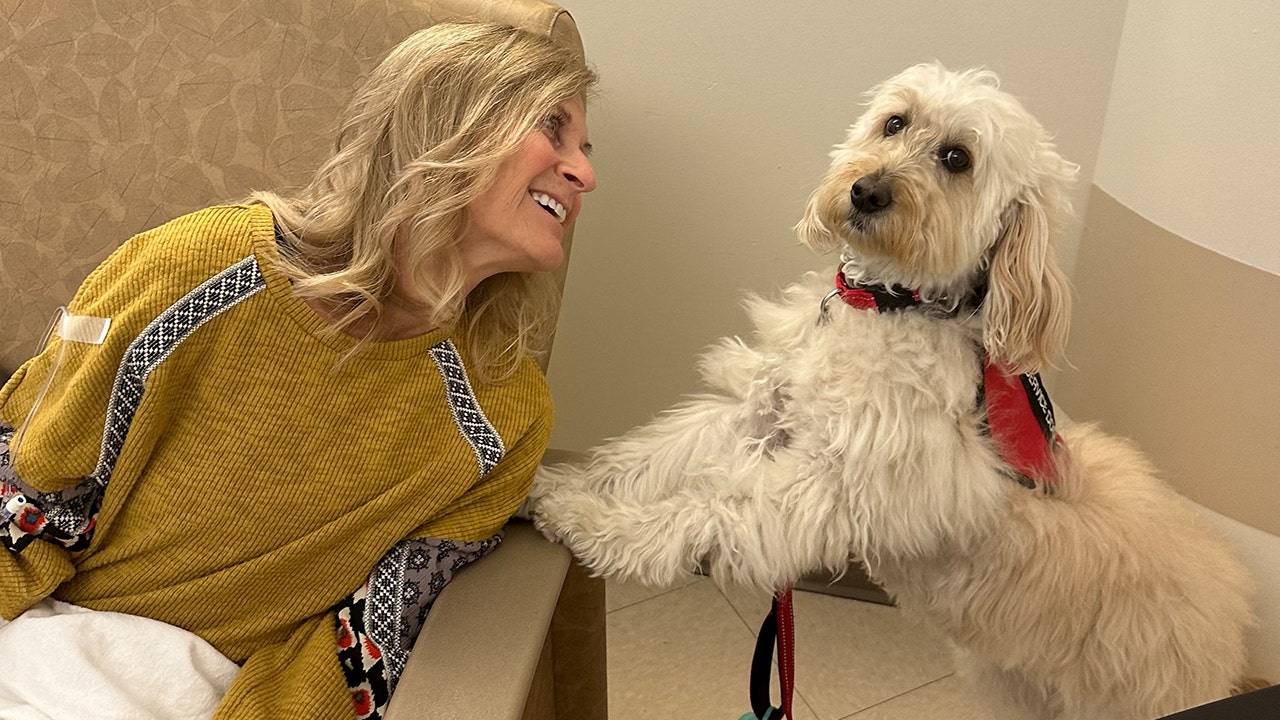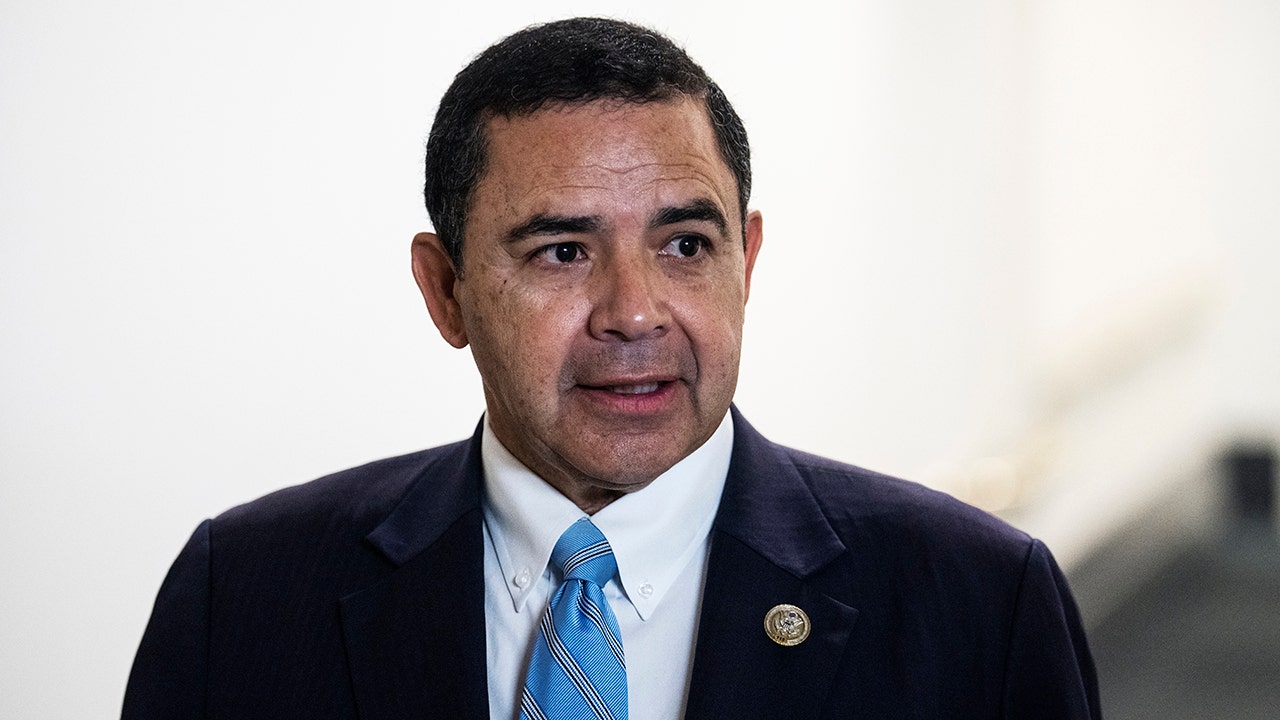Health
Alzheimer's drug embrace slows down as US doctors' reluctance grows

Nine months into the U.S. launch of the first drug proven to slow the advance of Alzheimer’s, Eisai and Biogen’s Leqembi is facing an unexpected hurdle to widespread use: an entrenched belief among some doctors that treating the memory-robbing disease is futile.
Alzheimer’s experts had anticipated bottlenecks due to Leqembi’s requirements, which include additional diagnostic tests, twice-monthly infusions and regular brain scans to guard against potentially lethal side effects.
And those issues have played a role in slow adoption since the drug was approved by the U.S. Food and Drug Administration, according to interviews with 20 neurologists and geriatricians from rural, urban, academic and community practices in 19 states.
FDA FULLY APPROVES ‘NOVEL’ ALZHEIMER’S DISEASE DRUG LEQEMBI, WILL BE COVERED BY MEDICARE
In interviews with Reuters, seven doctors treating patients for Alzheimer’s attributed their own reluctance to prescribe Leqembi to concerns about the drug’s efficacy, cost and risks.
The use of the FDA-approved Alzheimer’s drug, Leqembi, has slowed down as doctor’s skepticism increases, while patients like Lyn Castellano in St. Louis continue to use the drug as it offers a sense of hope for her future. (Joe Castellano/Handout via REUTERS)
“I don’t think it’s a good Alzheimer’s drug. I think that’s the problem,” said Dr. James Burke, a neurologist at the Ohio State University who has been an outspoken critic of Leqembi. “It’s certainly nothing like the home run that we’re looking for.”
Another six scientists, all leaders in the field, said “therapeutic nihilism” – the belief that Alzheimer’s is a hopelessly intractable disease – was playing a bigger role than anticipated in suppressing demand from primary care doctors, geriatricians and neurologists who could be sending patients to memory specialists for treatment.
Dr. Reisa Sperling, a neurologist and Alzheimer’s researcher at Mass General Brigham in Boston, likens some doctors’ skepticism to Leqembi to fatalistic attitudes about cancer treatment 30 years ago: “You can’t really do anything about it, so why would you even want to get tested?”
Alex Scott, Eisai’s chief administrative officer, acknowledged that skepticism has weighed on the launch along with slower-than-expected adoption by large health systems.
He suggested that some of the doctors’ hesitancy could be a holdover from the decades-long journey to prove that removing the Alzheimer’s protein beta amyloid from the brain could slow the course of the disease. Before Esai released the promising results of its Leqembi trial, some thought that area of research “a fool’s errand,” Scott said.
“We are beginning to make more and more progress every single month. So we’re still quite encouraged,” Scott said. “This is a new journey, and I think it takes some time for providers to figure it out.”
‘SIGNIFICANT RISKS, MARGINAL BENEFIT’
Leqembi was the first amyloid-targeting drug granted full FDA approval after it slowed the decline in cognition in people in the early stages of Alzheimer’s by 27% in a clinical trial.
Of the 10,000 Americans the companies hoped to treat by the end of March, Eisai announced only a couple thousand had begun treatment as of the end of January. An Eisai spokeswoman declined to provide updated numbers.
Even for treatments that do not require dramatic changes to medical practice, adoption of new drugs is notoriously slow. Several studies have estimated that it can take 17 years on average for clinical research to be translated into routine practice.
The disease is estimated to affect more than 6 million Americans, according to the Alzheimer’s Association.
NEW DEMENTIA DRUG ‘HAS GIVEN ME HOPE’: ALZHEIMER’S PATIENTS REVEAL THEIR STORIES
Fewer than half of U.S. neurologists recommend Leqembi to patients, according to a January survey by life sciences market researcher Spherix Global Insights.
Dr. Michael Greicius, a professor at Stanford University’s Center for Memory Disorders, said there is little evidence that Leqembi benefits patients in a meaningful way.
“If we take the trial result at face value, the differences between placebo and treatment are likely small enough as to be undetectable by patients and family members or physicians,” said Greicius, who does not recommend Leqembi to patients.
He said the long wait for an Alzheimer’s drug has put doctors in the position of feeling obligated to offer a treatment “even if the evidence for it is very slim.”
Other doctors have raised concerns about the risk of brain swelling and bleeding associated with Leqembi as well as the costs associated with the $26,500 annual drug, frequent MRIs and twice-monthly infusions.
“There are significant risks associated with these drugs, there are significant costs, and I would say there is marginal benefit,” said Dr. Eric Widera, a geriatrician and professor at University of California San Francisco, referring to amyloid-lowering treatments.
In an editorial published in November in the Journal of Gerontological Nursing, Donna Fick, president of the American Geriatrics Society, advised doctors that the group recommends caution in the use of lecanemab, which is sold under the brand name of Leqembi.
“It is not yet clear whether treatments such as lecanemab that remove amyloid from the brain produce clinically important slowing of cognitive decline in Alzheimer’s disease.”
‘YOUR ENEMY IS NIHILISM’
Dr. Jonathan Liss, a neurologist from Columbus, Georgia, who serves on Eisai’s scientific advisory board and has tested Leqembi in clinical trials, said he first warned about nihilism at a November 2022 conference following a presentation of Leqembi’s breakthrough study.
Eisai had asked its scientific advisors how the drug might fare against future rivals. Liss cautioned that rivals were not the enemy; “your enemy is nihilism,’” he recalled. “All of the neurologists around the table started applauding.”
FIRST DRUG PROVEN TO SLOW ALZHEIMER’S WON’T BE AVAILABLE TO MOST PATIENTS FOR SEVERAL MONTHS
Dr. Nathaniel Chin, a geriatrician with the University of Wisconsin’s Alzheimer’s Disease Research Center, said he was the target of negative comments on social media after he urged geriatricians to embrace such treatments in the Journal of the American Geriatrics Society.
Geriatricians, geriatric social workers and nurses objected, arguing that the drug’s statistically significant benefit was not clinically meaningful to patients, especially given the risks, he said.
“I would ask the question, ‘Is it ethical to withhold a medication that is FDA-approved and covered by insurance from someone who knows the risk and is willing to take it?’” Chin said.
Dr. Priya Singhal, executive vice president and head of development at Biogen, acknowledged some apathy among physicians about the treatment but said that infrastructure and lack of access to neurologists have been bigger issues.
Singhal said the companies are working with physician and patient advocacy groups and developing educational programs and materials aimed at diagnosing early-stage patients, managing side effects and understanding the drug’s benefits.
The companies said they intend to increase their salesforce by 30% as they aim for 100,000 patients by 2026.
For the moment, Leqembi is the only Alzheimer’s drug on the market designed to slow the course of the disease. A decision on Lilly’s donanemab has been delayed until the FDA convenes an advisory panel.
Lilly neuroscience president Anne White said in an interview that she sees doctor hesitancy as an issue that the company hopes to address by making clear which patients benefit from such treatments.
In the early stages of Alzheimer’s, many patients are still independent, and to be able to remain so for longer is very meaningful, she said.
‘PEACE AND QUIET’
Lyn Castellano, 64, who founded and ran a St. Louis breast cancer charity for 20 years and trained therapy dogs, started taking Leqembi last September, nearly a year after she found herself struggling with keeping track of appointments and was diagnosed with mild cognitive impairment.
Castellano said the prospect of bleeding in the brain – a possible side effect of the drug – was her biggest concern, but her family believed the drug may offer a chance at slowing the disease.
She is one of more than 140 patients being treated by physicians from Washington University in St. Louis, and has had 13 infusions and two MRIs without incident.
Dr. Suzanne Schindler, an Alzheimer’s researcher who is treating Castellano, said Leqembi “forces clinicians to completely change the way they have practiced medicine for many years.”
She said she is candid about Leqembi’s modest benefit as well as the risks. About 80% of those she believes are good candidates have opted for the treatment, she said.
While Castellano can’t tell if Leqembi is helping, she says the treatment has given her hope, and she doesn’t mind the twice monthly infusions.
“I get to go, sit back in a nice chair, have my dog with me and read a book for a couple hours. It’s about the only place I get some peace and quiet.”

Health
Over 50 and Can't Lose Weight? What to Know About Sarcopenia + How to Fix It With Protein

Sign Up
Create a free account to access exclusive content, play games, solve puzzles, test your pop-culture knowledge and receive special offers.
Already have an account? Login
Forgot your password?
Get back to the Sign In
Use left and right arrow keys to navigate between menu items.
Use escape to exit the menu.
Health
Dairy farm worker infected with bird flu; CDC urges workers to wear protective gear

CDC issues alert over bird flu case
Fox News medical contributor Dr. Marc Siegel on what to know about bird flu and why it is important to not look directly at the solar eclipse without proper glasses
The Texas dairy farm worker infected with H5N1 bird flu was not wearing respiratory or eye protection and had been exposed to cattle that appeared to have the same symptoms as those in a nearby farm with a confirmed outbreak of the virus, according to new details on the case released on Friday.
The details, reported online in the New England Journal of Medicine, underscore the risk to farm workers in the ongoing outbreak among U.S. dairy cattle and the need to wear protective gear to avoid infection.
The outbreak – the first in cattle – is so far known to have infected 36 dairy herds in nine states.
AMID BIRD FLU SPREAD, EXPERTS REVEAL IF IT’S SAFE TO DRINK MILK: ‘INDIRECT CONCERN’
Infection by the bird virus is rare in humans, and the dairy worker’s case, first reported in March, represents only the second known human infection in the United States.
It follows a worrisome spread of the virus in a variety of mammal species, raising concerns that widespread exposure of people could cause the virus to spread more easily among the population and spark a global pandemic.
A Texas dairy farm worker had not reported any contact with sick or dead birds or other animals, but did have close exposure with sick dairy cows. (Reuters/Jim Vondruska/File Photo)
The U.S. Centers for Disease Control and Prevention (CDC) in the report said the farm worker developed a serious infection in his right eye known as conjunctivitis, or pink eye, but had no signs of respiratory infection or fever.
The worker had not reported any contact with sick or dead birds or other animals, but did have close exposure with sick dairy cows, with symptoms such as decreased milk production, reduced appetite and lethargy.
The worker had been wearing gloves but no respiratory or eye protection.
The CDC is urging farmers, workers, and emergency responders to wear appropriate protective gear when in direct or close physical contact with sick birds, livestock, feces, raw milk or contaminated surfaces.
An analysis of the outbreak released on Thursday by the U.S. Department of Agriculture suggests the virus has been circulating in U.S. dairy cows for about four months before being reported on March 25.
Preliminary tests of milk, baby formula and other dairy products suggests they are safe to consume, according to the FDA.
Health
Are noise-canceling headphones hazardous to your health? Audiology experts share warnings

Noise-canceling earbuds and headphones can be helpful when you need silence on demand — but could they be hazardous to your health?
The technology has grown in popularity among people who need to eliminate auditory distractions — background chatter, loud children or traffic noise. Yet some experts claim that blocking out the sounds of your surroundings can put you at risk.
“Technology often provides convenience at the cost of awareness,” Josh Gordon, head of innovation at the Singapore technology company Geonode, told Fox News Digital.
FITNESS CLASS TOO LOUD? WHAT TO KNOW ABOUT PROTECTING YOUR HEARING HEALTH
“Noise-canceling earbuds may bring welcome silence, but they might also mask vital sounds that could save your life.”
Generally, good noise-canceling headphones can reduce noise by 20 to 40 decibels (dB), according to Gordon.
Noise-canceling earbuds and headphones can be helpful when you need silence — but some experts say they can be hazardous to your health. (iStock)
“There are positives and negatives to every technology,” Dr. Ruth Reisman, a clinical audiologist and hearing aid dispenser in New York State, told Fox News Digital.
“There can be some negative side effects to wearing noise-canceling headphones, including the reduction of awareness of [people’s] surroundings.”
ASK A DOC: ‘WHY ARE MY EARS RINGING, AND SHOULD I SEE A DOCTOR?’
One of Reisman’s colleagues recently did a study on this topic, she said.
“It was found that in addition to the volume of the media, the exposure and time of usage can also impact the patients’ hearing,” she noted.
This can potentially result in hearing damage and an “auditory processing challenge,” according to Reisman.

Generally, good noise-canceling headphones can reduce noise by 20 to 40 decibels, an expert noted. (iStock)
Joel Smith, a California-based audio expert and founder of the music hub AllAxess.com, agreed that noise-canceling headphones can impact hearing if they’re not used properly.
“Blasting the volume for too long can cause noise-induced hearing loss, ringing in the ears called tinnitus or even make it harder to process and distinguish sounds clearly over time,” he told Fox News Digital.
HEARING LOSS MORE LIKELY TO AFFECT RURAL AMERICANS AND MEN, NEW STUDY SHOWS
Constant exposure to loud noise can damage the inner ear hair cells that send sound signals to the brain, according to Smith.
“As those hair cells deteriorate from the loud noise, it makes it harder for your brain to properly interpret speech, background noise and other subtle sounds,” he said.
“It’s like your auditory processing gets muffled or desensitized.”

Noise-canceling earbuds or headphones can be used safely, “as long as they are set at an appropriate volume and not used for extended periods of time,” an expert said. (iStock)
Another risk, according to Smith, is that earbuds that aren’t cleaned regularly can trap moisture and bacteria, increasing the risk of ear infections.
“Some studies also suggest that excessive headphone use might affect your balance and spatial awareness, since you’re not relying on natural sound cues as much,” Smith added.
Safe usage tips
Noise-canceling headphones have their benefits, experts agree.
They can be helpful for people who have hyperacusis (sensitivity to noise) or those who have autism, Reisman advised.
“This can often make a noisy or disorienting environment tolerable or accessible to individuals with these challenges,” the doctor said.
EAR INFECTIONS IN YOUNG CHILDREN COULD LEAD TO DELAYED SPEECH FOR THEM, STUDY FINDS
Noise-canceling earbuds or headphones can be used safely, Reisman said — “as long as they are set at an appropriate volume and not used for extended periods of time.”
Research shows that anything below 80 decibels is considered a safe volume, the doctor noted, with usage ideally limited to no more than two to three hours per day.

Constant exposure to loud noise can damage the inner ear hair cells that send sound signals to the brain, according to an expert. (iStock)
“The question is how to actually measure the amount of decibels at the level of the eardrum,” she said.
“You can potentially go to an audiologist and have [the expert] do a real ear measure, or use a sound level meter at the level of the ear to assess the intensity.”
Some phones also offer some guidance on safe volume levels, Reisman added.
CLICK HERE TO SIGN UP FOR OUR HEALTH NEWSLETTER
“I don’t think people need to avoid [noise-canceling headphones] completely, but you’ve got to use them responsibly,” Smith said.
He recommends following the 60/60 rule, which means keeping the volume at 60% or less and taking a break every 60 minutes to give your ears a rest.

“I don’t think people need to avoid [noise-canceling headphones] completely, but you’ve got to use them responsibly,” an expert said. (iStock)
“Be extra cautious in loud environments, since you might crank it up way too high to overcome that background noise,” he advised.
Smith recommended taking regular breaks and keeping volumes moderate to prevent auditory fatigue and preserve healthy hearing into older age.
“Technology is a powerful tool,” Gordon added.
“But like any tool, understanding its limitations and using it responsibly is key to staying safe.”
For more Health articles, visit www.foxnews.com/health.
-

 News1 week ago
News1 week agoLarry Webb’s deathbed confession solves 2000 cold case murder of Susan and Natasha Carter, 10, whose remains were found hours after he died
-

 World1 week ago
World1 week agoHaiti Prime Minister Ariel Henry resigns, transitional council takes power
-

 News1 week ago
News1 week agoFirst cargo ship passes through new channel since Baltimore bridge collapse
-

 World1 week ago
World1 week agoUS secretly sent long-range ATACMS weapons to Ukraine
-

 World1 week ago
World1 week agoSpanish PM Pedro Sanchez suspends public duties to 'reflect'
-

 News1 week ago
News1 week agoAmerican Airlines passenger alleges discrimination over use of first-class restroom
-

 Movie Reviews1 week ago
Movie Reviews1 week agoHumane (2024) – Movie Review
-

 Education1 week ago
Education1 week agoVideo: Johnson Condemns Pro-Palestinian Protests at Columbia University



/cdn.vox-cdn.com/uploads/chorus_asset/file/23382326/VRG_Illo_STK022_K_Radtke_Musk_Tesla.jpg)










